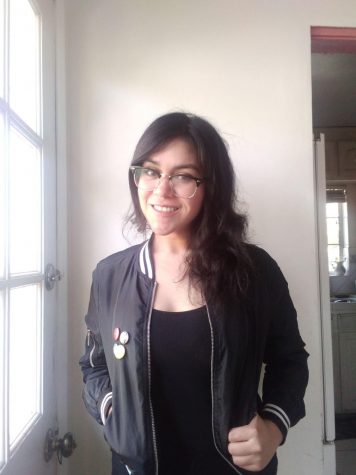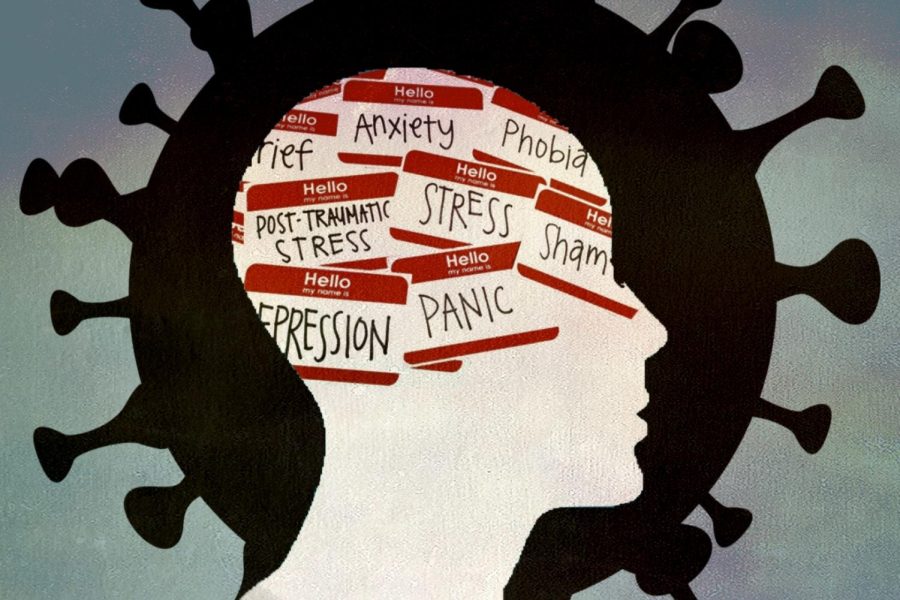How COVID-19 Ruins Mental Health
Mt. SAC students dealt with the effects of COVID-19 in various ways
When we talk about what the pandemic has taken from us over the last two years, we often only consider the physical losses and tangible holes in our lives. Whether it be the loss of routine, the loss of jobs and income, the loss of home and safety and most importantly, the loss of loved ones, the physical effects of this deadly disease can be seen everywhere we look. But the pandemic diminished our spirits and our mental health more than we realize. SAC.Media talked to some Mt. SAC’s students to understand how their mental health has been affected.
Some of the most difficult aspects of the pandemic were the mental toll of isolation and the transition to digital communication and interaction. For Katerina Cervantes, 18, a student at Mt. SAC, the adjustment to a life online was difficult.
“What was really hard, being a social person, is I felt really disconnected from people,” Cervantes said. “From the beginning of COVID to about August, I was sad and depressed, and I think there wasn’t too much I could do because I couldn’t see a lot of people. My parents were really worried.”
Cervantes isn’t alone. With the quarantine that kept everyone locked in their homes, as well as schools and businesses shut down or heavily restricted, there was a sharp rise in anxiety and depression among the population.
Coping with this isolation meant exploring other means of communication and activity.
“I started baking. And I would FaceTime my friends, but there was just nothing really going on in my life. There just wasn’t much I could do,” Cervantes said.
Communication with friends helped her deal with the isolation.
“We are honest with each other about how we feel. ‘I’m not feeling happy today,’ or, ‘Actually, it’s feeling really hard right now.’ So, I think communicating how we actually feel has helped all of us because we all feel the same,” she added.
Cervantes is one of the lucky ones.
The country has experienced a loneliness epidemic that worsened with the pandemic. According to the Making Caring Common Project, 43% of young adults reported increases in loneliness since the start of the pandemic, with 63% of this age group suffering significant symptoms of anxiety and depression.
“It’s weird to think about it because it’s still… this is life now. It’s still different than how my life used to be. It was pretty hard on the mental health aspect. I think it was kind of hard to accept that change,” Cervantes said.
However, loneliness and isolation were not the only mental health concerns of the pandemic. As a community college, Mt. SAC hosts students of all walks of life, many of whom hold jobs or other obligations outside of their education that have been complicated by COVID-19.
Abraham Navarro, a former student who graduated in early 2021, knows this struggle all too well.
“The shift online made everything so hard, and school was so much of a bigger thing,” Navarro said. “I was overworking myself because there was so much stuff going on. We had to worry about our jobs, about money, about getting sick because nobody wanted to die, and of course, because my grandma was sick already.”
Navarro’s grandmother, Vicenta Garay, 83, was ill when his immediate family was threatened by the virus. “She was at risk and we couldn’t be out and about and risk ourselves getting sick because we were part of her caregivers,” Navarro said.
Garay later passed away in her home, surrounded by her loving family.
In addition to his responsibilities to his family, his job and his education, Navarro was also involved in the college newspaper as the editor-in-chief, which added even more stress to his already busy life. Despite his passion for journalism, he ultimately decided to step down and focus on his mental health.
“The divide between the home and school was just blurred completely,” Navarro said. “I was freaking out and I know it was the best choice because I was killing my passion.”
It is common for people to pour themselves into their work in times of stress; when the world is in chaos, work can provide some semblance of control and order. However, there lies danger in spreading oneself too thin and burning out, and Navarro had put himself in harm’s way.
“I was feeling the burnout, and there was just so much more going on in my life that I felt it was the best choice (to step away from SAC.media),” Navarro said. “If I wasn’t going to take care of myself at that time, then I probably was going to be feeling worse.”
The decision to focus on his mental health proved to be a timely one.
“I talked to therapists and had been diagnosed with depression and anxiety,” Navarro said. “If I didn’t step away and spend the time to grieve and take the time to accept what was happening, then I probably would be in a lot worse place than I am now.”
Prior to the pandemic, Navarro was thriving.
“I was being more happy with being a journalist and was actually getting over writer’s block,” Navarro said. “I started reading poetry and stuff. I was really starting to like photography, and I was actually getting ready to enroll in more classes to get a second degree.”
Navarro blames COVID-19 for the radical shift in the trajectory of his education.
“Maybe I’ll shoot again, but during the pandemic, it just kind of shut down my passions. I was beginning to bloom into and explore some more,” Navarro said. “Yeah, it kind of just killed it for me.”
After making it through a devastating quarantine, Mt. SAC was ready to open its doors again to classes only to be threatened by the different variants sweeping across the country.
For many students, the pursuit of education was a fruitless task, devoid of engagement with the material and reward for their efforts. Students pushed harder to complete their education while dealing with the struggles of life and the burden of an indefinite pandemic, but as Navarro showed, the risk of burnout and severe mental distress loom over those who aren’t careful.
“I think it’s important that students take care of their mental health first. School will still be there,” Navarro said. “What’s important is that you will be there too, and you’ll be in a good mental capacity to take it on, because people probably sacrificed themselves too much for the work right now. There’s been a lot going on in everybody’s life, and you need to take it easy on yourself.”
But focusing on mental health and self-care is a difficult task even during the best of times, let alone a pandemic. Even then, the stress of dealing with the virus is only half the battle. Millions of people across the country engaged with conspiracy theories that downplay the effects of the pandemic and politicize the response. This behavior not only delayed the economic recovery from the pandemic but threatened the health and safety of others.
Brigette Lugo, a Mt. SAC journalism graduate, is frustrated by the response people have had to the pandemic.
“I know many people are seeking false vaccination cards and QR codes, and who are thinking that this is a plandemic (planned pandemic),” Lugo said. “We also have a new variant coming in. I wish that there was more belief in science and not politics because this is not a conspiracy.”
With so many students who experienced mental duress due to the pandemic, seeing people fight against a path back to normalcy compounded these frustrations.
“It’s really hard when you have valid, scientific-backed resources at your disposal for free and you say you’re going to be filled with some kind of liquid that’s going to track you the rest of your life,” Lugo said. “I mean, I have heard it all. And it makes me really sad that we will probably not be out of this for a while.”
Lugo’s feelings are echoed by young adults around the country, with 52% believing that America’s democracy is failing as a result of this increasing political divide amid the pandemic. This spreading concern of a deteriorating democracy has shifted how young adults engage with the people around them.
“We’re conscious of the fact that it’s not just ourselves and our health but other individuals who choose to not believe in the actual science,” Lugo said. “That’s the part I try not to think about: don’t get in arguments with people. But in my head, it’s scary stuff what people believe. I don’t expect a deadline for this. I don’t. I feel like we’re going to be in this for a long time.
The pandemic-induced desolation many are feeling is significant but not necessarily permanent. As cases and mandates begin to lessen, a world in which we coexist with the virus seems to be ahead of us. However, the lengths necessary to ensure a safe transition to this new normal are still uncertain.



